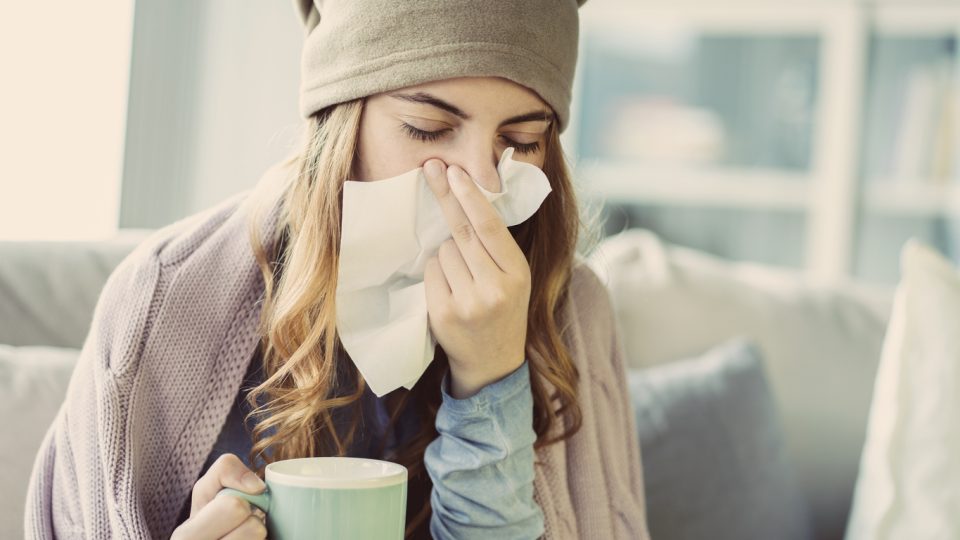By Children’s Health
Learn how to tell the difference between common allergy symptoms and signs of COVID
More than 6 million children in the U.S. are affected by seasonal allergies or hay fever, and allergy symptoms can spike when pollen counts are high. But during the pandemic, how can parents tell if their child’s sniffle or sore throat is simply pollen-related or if it could be a sign of COVID-19?
“Symptoms of allergies and mild COVID-19 infections can be similar, and it can be hard to distinguish between the two without testing,” says Jeffrey Chambliss, M.D., Pediatric Allergist at Children’s Health℠ and Assistant Professor at UT Southwestern. “If you have any concerns about your child’s symptoms or if you suspect your child could have been exposed to COVID-19, it’s best to contact your pediatrician.”
Learn more about the common symptoms of seasonal allergies and COVID-19, the differences between the two and the best ways to manage your child’s allergies during the pandemic.
What are the differences between seasonal allergies and COVID-19?
While COVID-19 and seasonal allergies can cause similar symptoms, there are differences between the two conditions. COVID-19 is a respiratory illness caused by the SARS-CoV-2 virus. Seasonal allergies are caused by the immune system’s overactive response to airborne pollens released by trees, grasses and weeds.
Shared symptoms of allergies and COVID-19
Many symptoms of seasonal allergies overlap with COVID-19 symptoms. Both conditions can cause:
- Congestion
- Runny Nose
- Coughing
- Sore Throat
- Fatigue
- Headache
COVID-19 can also cause shortness of breath or difficulty breathing. This is not a common symptom of allergies but can occur in children who have a respiratory condition like asthma that is triggered by pollen.
COVID-19 symptoms vs. allergies
While COVID-19 and allergies share certain symptoms, there are some differences.
Seasonal allergies often cause sneezing and can lead to itchy or watery eyes, which are not typical symptoms of COVID-19. “If your child has experienced allergies during a specific time of year in the past and their current symptoms are similar to what they’ve experienced before – then it may be from allergies again,” says Dr. Chambliss. “Proactively treating your child’s allergy symptoms may help clear up some confusion, but if your child hasn’t had allergies before or if their symptoms seem different, it’s best to get your pediatrician’s advice.”
In general, the following symptoms are more likely to be associated with COVID-19 – and not allergy-related:
- Fever
- Chills
- Muscle or body aches
- Loss of taste or smell
- Nausea or vomiting
- Diarrhea
If your child is experiencing one or more of these symptoms seen in COVID-19, contact your pediatrician. They can review symptoms and let you know if your child should get a COVID-19 test.
Add Quote CoIf your child hasn’t had allergies before or if their symptoms seem different, it’s best to get your pediatrician’s advice.
How can I prevent seasonal allergy symptoms?
You can reduce your child’s seasonal allergy symptoms by limiting their exposure to pollens. Take steps to minimize allergy symptoms, including:
- Staying indoors and keeping windows and doors closed during the peak pollen season
- Using a HEPA filter
- Vacuuming frequently
- Washing clothes and bathing after spending time outdoors
- Using an over-the-counter saline nasal rinse or spray (to flush out pollens)
Taking these simple steps may be even more helpful during the pandemic, as any cough or congestion can be cause for concern.
How can I prevent COVID-19?
The best way to prevent COVID-19 is to get a COVID‑19 vaccine vaccine if you are eligible. You and your family can also take steps to protect against the spread of the virus, such as wearing masks and washing hands.
In addition to helping prevent COVID-19, consistent mask wearing may also decrease a child’s exposure to airborne pollens. Regularly washing face masks is encouraged for every child, and this may help clean masks of any pollen particles.
Getting tested for COVID-19
If your child is showing symptoms of COVID-19 or you think they may have been exposed, it’s best to act cautiously to prevent the spread of COVID-19. A test can help you determine if your child has COVID-19, or if they have a different cause for their symptoms such as allergies. See tips to help a child prepare for a COVID-19 test.
If your child’s symptoms are not due to COVID-19 and are allergy-related, your pediatrician can recommend more tips to help you manage their symptoms. There are also treatments your pediatrician or a specialist can recommend.
If your child faces seasonal allergies, you may be wondering if their sniffle and sore throat is allergy-related or if it could be a sign of COVID-19. Learn how to tell the difference from @Childrens.
Learn more
Children’s Health is committed to remaining a trusted source of health information and care for you and your family during this time. See more resources to keep your family healthy at the Children’s Health COVID-19 hub.
Sign Up
Stay current on the health insights that make a difference to your children. Sign up for the Children’s Health newsletter and have more tips sent directly to your inbox.


